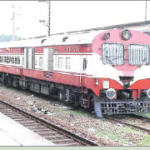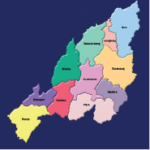ESIC Contract Likely to go to TCS
In the contract to computerise Employee State Insurance Corporation (ESIC) Tata Consultancy Services (TCS) has emerged the lowest bidder. And as per the normal practice, tendered contracts are generally awarded to the L-1 (lowest) bidder. An announcement regarding this would be made soon. ESIC, country’s largest e-Governance project aims at providing smart cards to around 1.5 crore industrial workers across the country. The project is slated to be operational in the next 12-18 months.
normal practice, tendered contracts are generally awarded to the L-1 (lowest) bidder. An announcement regarding this would be made soon. ESIC, country’s largest e-Governance project aims at providing smart cards to around 1.5 crore industrial workers across the country. The project is slated to be operational in the next 12-18 months.
The bids were invited for implementation of ‘Project Panchdeep’ on Build-Own-Operate-Transfer (BOOT) basis, towards IT-enablement of ESIC from global IT service providers. The financial bids were opened on Tuesday which revealed that TCS with its bid of INR 1,677 crore, beat its closest IT rivals Infosys and Wipro who bid about INR 2,100 crore and INR 1,890 crore respectively, in order to emerge the lowest bidder.

The five levels of the ESIC project are respectively termed as Pehchan, Milap, Pashan, Dhanvantri and Pragati. This ESIC project will beat the INR 1,000 crore Passport Seva Project, again bagged by TCS, as the largest e-governance contract in the country. Under the five-level Panchdeep Project of ESIC, all services related to identification, authentication and verification of members will be enabled by the IT service provider.
INR 250 crore for e-Governance Project of CDSCO
The Ministry of Health & Family Welfare will invest close to INR 250 crore ($50 million) in the e-Governance initiative of Central Drugs Standard Control Organisation’s (CDSCO’s). The initiative aims to enable transparency and efficiency in the working of the CDSCO.
The application developed by a New York based technology solutions provider MGRM, will make available details of licensing, regulation, monitoring and even inspection audits. Thus, this system will work not only for companies, who will be able to submit all applications and data online, but will also smoothen the interface between various officials of the drug controller’s office. So much so that companies will even be able to file, track and review their patent applications online. The first phase of the project is expected to be completed in a year, following which CDSCO, along with MGRM, will float a national tender inviting developers to bid for the project. The project itself is expected to be up and running by 2013.

The Drug Controller General of India’s (DCGI’s) e-Governance initiative has received interest from the World Health Organisation and Health Canada—the Canadian health regulator. The best part of this initiative is that now volunteers who enroll for multiple clinical trials in quick succession at the prospect of high remuneration will not be able to do so. The finger printing software, which is a part of the project, will interlink clinical trial softwares, allowing companies to enroll only first time volunteers.
Companies Bill 2008 Introduced for Better e-Governance
Companies Bill, 2008 has been introduced in the Lok Sabha recently. The Bill mainly aims at the consolidation and amendment of the laws relating to companies. The Bill will focus towards modernization of the structure for corporate regulation in India and thus represents a major reform statement by the Government to promote the development of the Indian corporate sector.
On the 21.10.2008 Companies (Amendment) Bill, 2003 was withdrawn, which had been introduced in the Rajya Sabha way back on 7.5.2003. And the reason forwarded for the withdrawal was that the Companies (Amendment) Bill, 2003 was no more in tune with the present day requirements of corporates in India.
The comprehensive revision of the Companies Act, 1956 was necessitated because the number of companies in India have expanded from about 30,000 in 1956 to above 7 lakhs today. The Bill reinforces shareholders democracy, facilitates e-Governance in company processes; recognizes the liability of Boards, directors and senior management personnel of companies; provides for a new scheme for penalties and punishment for non compliance or violation of the law; harmonizes corporate regulation with action by sectoral regulators; incorporates a new framework for mergers and amalgamations of companies and provides an extensive Insolvency Code based on the latest principles recommended by the United Nations Commission on International Trade Law (UNCITRAL).
Satyam Front Runner for Railways IT Contract
Hyderbad-based company, Satyam Computer Services, seems to be positioned favorably to win a significant Information Technology (IT) outsourcing  contract from Indian Railways. This project which entails providing an asset management solution based on SAP business software for four locomotive sheds. Besides Satyam, TCS and Wipro were amongst the other bidders towards this project.
contract from Indian Railways. This project which entails providing an asset management solution based on SAP business software for four locomotive sheds. Besides Satyam, TCS and Wipro were amongst the other bidders towards this project.
The contract will be the first in a series of outsourcing deals worth almost INR 2,000 crore to be awarded by Railways over the next few months. According to the industry sources, Satyam has bid lower than its rivals for the first of Railways’ planned contracts, bidding will only get more competitive for the rest of the deals. Sources further said, Railways plans to outsource three more contracts over the next few months, each estimated to be worth INR 450-500 crore. The projects will be for automating and integrating its finance and payroll functions, materials management and software-aided train scheduling.
Government departments and state-owned companies are expected to spend nearly INR 10,000 crore on IT by the financial year end – March 2009. Next year, this sector is expected to buy IT hardware and software worth around INR 9,000 crore. The National e-Governance Plan (NeGP) is also under review, so its estimates for the next year could change.
INR 1,237 CRORES TO BE RELEASED FOR STATE DATA CENTERS
For a total outlay of INR 1,237 crores, the Department of Information Technology (DIT), Government of India has approved the establishment of State Data Centres (SDC) in 27 States/UTs (Union Territories). The States whose  proposals have been approved are: Andhra Pradesh, Assam, Chhattisgarh, Goa, Gujarat, Haryana, Himachal Pradesh, Jharkhand, Kerala, Madhya Pradesh, Maharashtra, Manipur, Meghalaya, Nagaland, Orissa, Puducherry, Punjab, Rajasthan, Sikkim, Tamil Nadu, Tripura, Uttar Pradesh, West Bengal, Bihar, Uttarakhand, Arunachal Pradesh and Mizoram.
proposals have been approved are: Andhra Pradesh, Assam, Chhattisgarh, Goa, Gujarat, Haryana, Himachal Pradesh, Jharkhand, Kerala, Madhya Pradesh, Maharashtra, Manipur, Meghalaya, Nagaland, Orissa, Puducherry, Punjab, Rajasthan, Sikkim, Tamil Nadu, Tripura, Uttar Pradesh, West Bengal, Bihar, Uttarakhand, Arunachal Pradesh and Mizoram.
The DIT Share in this outlay is INR 412 crores, while the remaining 825 crores will be met through Additional Central Assistance (ACA). These centres will be supported by State Wide Area Network (SWAN) and Common Service Centres (CSC) established at the village level, as part of the e-Governance project. It is expected that the Data Centers in about 12-15 States, shall be set up and operationalised by end June 2009. Data Centre in the remaining States and UTs shall be progressively implemented from August 2009 onwards and the entire exercise is expected to be completed by December 2009/March 2010. Typical time for implementation for State Data Centre is about 10 to 12 months.
As the Data Centers shall be hosting critical and sensitive government data, the ownership, strategic control and management/preservation of the data is being kept with the government. The Data Centre shall have all the physical and logic security components necessary from information security perspective, and will need to be ISO27001 certifi cated. Further, the security audit of the Data Centre has been mandated to be carried out once in six months by the states. The National Informatics Centre (NIC) would advise the states on security related framework to be put in place for SDC.
NAGALAND LAUNCHES 220 COMMON SERVICE CENTRES
Nagaland launched 220 Common Service Centres (CSCs) in the state recently. The launch was held in the Conference Hall of Chief Secretary which marked the  signing of the Master Service Agreement (MSA) between the Government, State Designated Agency (SDA) which is the Nagaland State E Governance Society(NSeGS) and the Service Centre Agency (SCA) for Nagaland which is Terrasoft.
signing of the Master Service Agreement (MSA) between the Government, State Designated Agency (SDA) which is the Nagaland State E Governance Society(NSeGS) and the Service Centre Agency (SCA) for Nagaland which is Terrasoft.
The CSCs will be utilised as effi cient distribution channels through which the government can offer its services, information and schemes to citizens in a cost effective, sustainable and effi cient manner.
The SCA shall develop, design, build, roll-out, establish, manage, operate, maintain and fi nance the CSCs for delivery of services to the customers in accordance with the provisions of this MSA on a Build, Own, Operate and Transfer (BOOT) basis.
On this basis the SCA shall be allowed to collect transaction charges for providing government services as determined by Govt/ SDA and receive revenue support. This is agreed between the SCA and Government of Nagaland, vide the MSA by enabling the private and social sector to use this network for offering a host of IT and non-IT related services to customers and users.
The SCA further plans to introduce other services for the benefi t of the citizens. The existing Community Information Centres (CIC) at the 52 blocks will be integrated with the CSCs with a specifi c condition that all existing CIC personnel will be absorbed by the SCA as per the existing terms and condition.
BMC FLOATS ITS FIRST ONLINE TENDER
As a part of pilot project Brihan Mumbai Municipal Corporation(BMC) fl oated its fi rst online tender recently. The fi rst of the e-Tenders will be fl oated for the purchase of monsoon kits for students at civic schools. The vendors bidding for it will get a password, following which they will be able to open a web page and fi ll in the forms. The process will be so guarded that a vendor will not know who the other competitors are. This practise will hopefully put an end to all all rigging and red-tapism indulged in by a handful of contractors. The project is being launched as part of its e-Governance plan.
Be a part of Elets Collaborative Initiatives. Join Us for Upcoming Events and explore business opportunities. Like us on Facebook , connect with us on LinkedIn and follow us on Twitter, Instagram.











